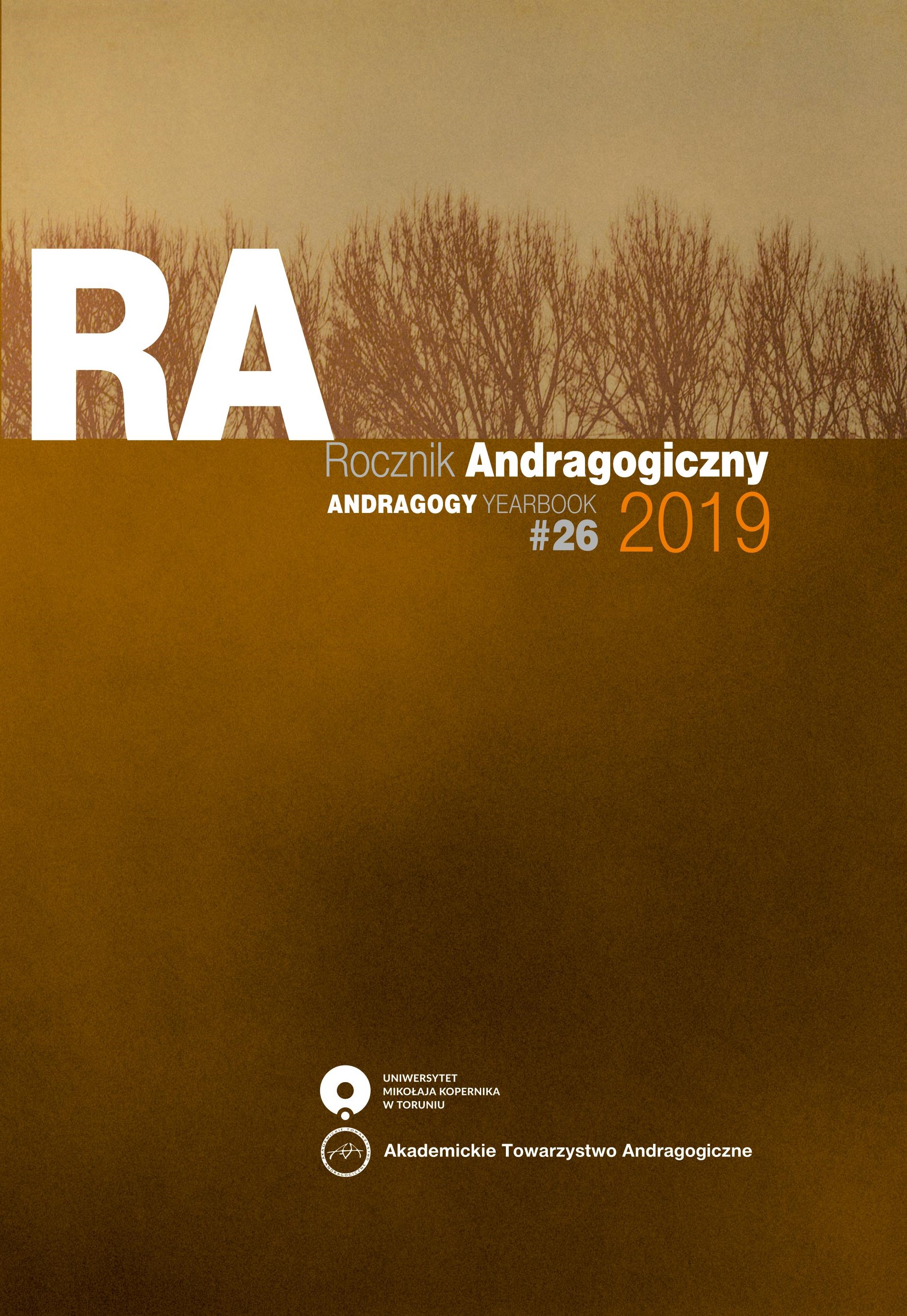At the intersection of development, disability and postcolonial theory. Are people with a disability marginalised among the marginalised?
DOI:
https://doi.org/10.12775/RA.2019.005Keywords
social-justice-based development, critical global disability studies, postcolonial theory, WHO’s MIND project, marginalisation, global justice educationAbstract
While inequalities and injustices originating from the social categorisations of race, gender, sexual orientation, ethnicity, religion, or nationality seem to be a general focus of both development and postcolonial discourses, the issue of disability seems to be rather overshadowed. Therefore, since even the World Health Organisation (WHO) itself and its Mental Health Improvements for Nations Development (MIND) project represents disability as a barrier to development – so as a factor globally contributing to poverty, inequality, and injustice and not the other way around – there is a need to extend our attention when investigating exploiting and disempowering power relations inherent in the 21st century that aim at eliminating human differences. The present theoretical inquiry concentrates thus on emphasising a call for bringing together the disability and postcolonial debates in the investigation of social-justice-based development and the role education might in general play in the realisation of just societies and the equality of all individuals around the world. The paper starts by shortly introducing the concepts of development, disability, and postcolonial theory, and then aims at accentuating the need of a critical global disability studies for the sake of decolonising current practices and making present, marginalised, and disaccredited knowledges of a complex and heterogeneous disability experience. Finally, the paper highlights that a decolonised understanding of disability should be inherent in present educational agendas – integral to development processes – because human differences should not be factors that impoverish but that empower human relationships.References
Altermark N. (2017), The post-institutional era: Visions of history in research on intellectual disability, “Disability & Society”, 32(9), pp. 1315–1332.
Andreotti V. (2011), Actionable postcolonial theory in education, Palgrave Macmillan, New York.
Barker C., Murray S. (2010), Disabling postcolonialism: Global disability cultures and democratic criticism, “Journal of Literary & Cultural Disability Studies”, 4(3), pp. 219–236.
Chataika T. (2012), Disability, development and postcolonialism, [in:] D. goodley, B. Hughes, L. J. Davis (eds.), Disability and social theory: New developments and directions, Palgrave Macmillan, Houndmills–Basingstoke–Hampshire, pp. 252–269.
Desai V., Potter R. B. (eds.) (2014), The companion to development studies, Routledge, London–New York.
Ghai A. (2012), Engaging with disability with postcolonial theory, [in:] D. Goodley, B. Hughes, L. J. Davis (eds.), Disability and social theory: New developments and directions, Palgrave Macmillan, Houndmills–Basingstoke–Hampshire, pp. 270–286.
Goulet D. (1971), The cruel choice: A new concept on the theory of development, Atheneum, New York.
Grech S. (2012), Disability and the majority of the world: A neocolonial approach, [in:] D. Goodley, B. Hughes, L. J. Davis (eds.), Disability and social theory: New developments and directions, Palgrave Macmillan, Houndmills–Basingstoke– –Hampshire, pp. 52–69.
Kapoor I. (2004), Hyper-self-reflexive development? Spivak on representing the Third World ‘Other’, “Third World Quarterly”, 4(25), pp. 627–647.
Linton S. (2005), What Is Disability Studies?, “Modern Language Association”, 120(2), p. 518–522.
Malec M. (2005), Experience of “otherness” as the situation of learning, [in:] A. Bron, E. Kurantowicz, H. S. Olesen, L. West (eds.), Between “Old” and “New” Worlds of Adult Learning, Wydawnictwo Naukowe DSWE, Wrocław, pp. 285–293.
Mandel J. (2006), Global justice, Polity Press, Cambridge.
Marquis E., Redda A., Twells L. (2018), Navigating complexity, culture, collaboration, and emotion: Student perspectives on global justice and global justice education, “Teaching in Higher Education”, 23(7), pp. 853–868.
Said E. (1983), The world, the text, the critic, MA: Harvard University Press, Cambridge.
Santos B. D. (2007), Beyond abyssal thinking: From global lines to ecologies of knowledges, “Review”, 31(1), pp. 45–89.
Sherry M. (2004), (Post) colonizing disability, “A Journal of Transnational Women’s and gender Studies”, 4, pp. 10–22.
Silvers A. (2010), An essay on modelling: The social model of disability, [in:] D. C. Ralston, J. Ho (eds.), Philosophical reflections on disability, Springer, London, pp. 19–36.
Spivak G. C. (1994), Bonding in difference, [in:] A. Arteaga (ed.), An other tongue: Nation and ethnicity in the linguistic borderlands, NC: Duke University Press, Durham, pp. 273–285.
Spivak G. C. (1998), Can the subaltern speak?, [in:] C. Nelson & L. grossberg (eds.), Marxism and the interpretation of culture, University of Illinois Press, Urbana, pp. 271–313.
The NgO Committee on Mental Health (2012), October 11), UN – global Mental Health, WHO Action Plan, http://historypsychiatry.com/2012/10/05/unglobal-mental-health- who-action-plan-oct-11–2012/ [15.08.2019].
Thirlwall A. P. (2014), Development and economic growth, [in:] V. Desai, R. B. Potter (eds.), The companion to development studies, Routledge, London–New York, pp. 61–65.
Titchkosky T., Aubrecht K. (2015), WHO’s MIND, whose future? Mental health projects as colonial logics, “Social Identities”, 21(1), pp. 69–84.
World Health Organization (WHO) (2011), 2011 World Mental Health Day. The great push: Investing in mental health, http://www.wfmh.com/2011DOCS/2011%20 WORLD%20MeNTAL%20HeALTH%20DAY%20document.pdf [15.08.2019]
Zaorska M. (2014), Disabled person on the road to professional activation – selected issues related to the realities of contemporary social reality, “Rocznik Andragogiczny”, 21, pp. 227–236.
Downloads
Published
How to Cite
Issue
Section
Stats
Number of views and downloads: 624
Number of citations: 0



